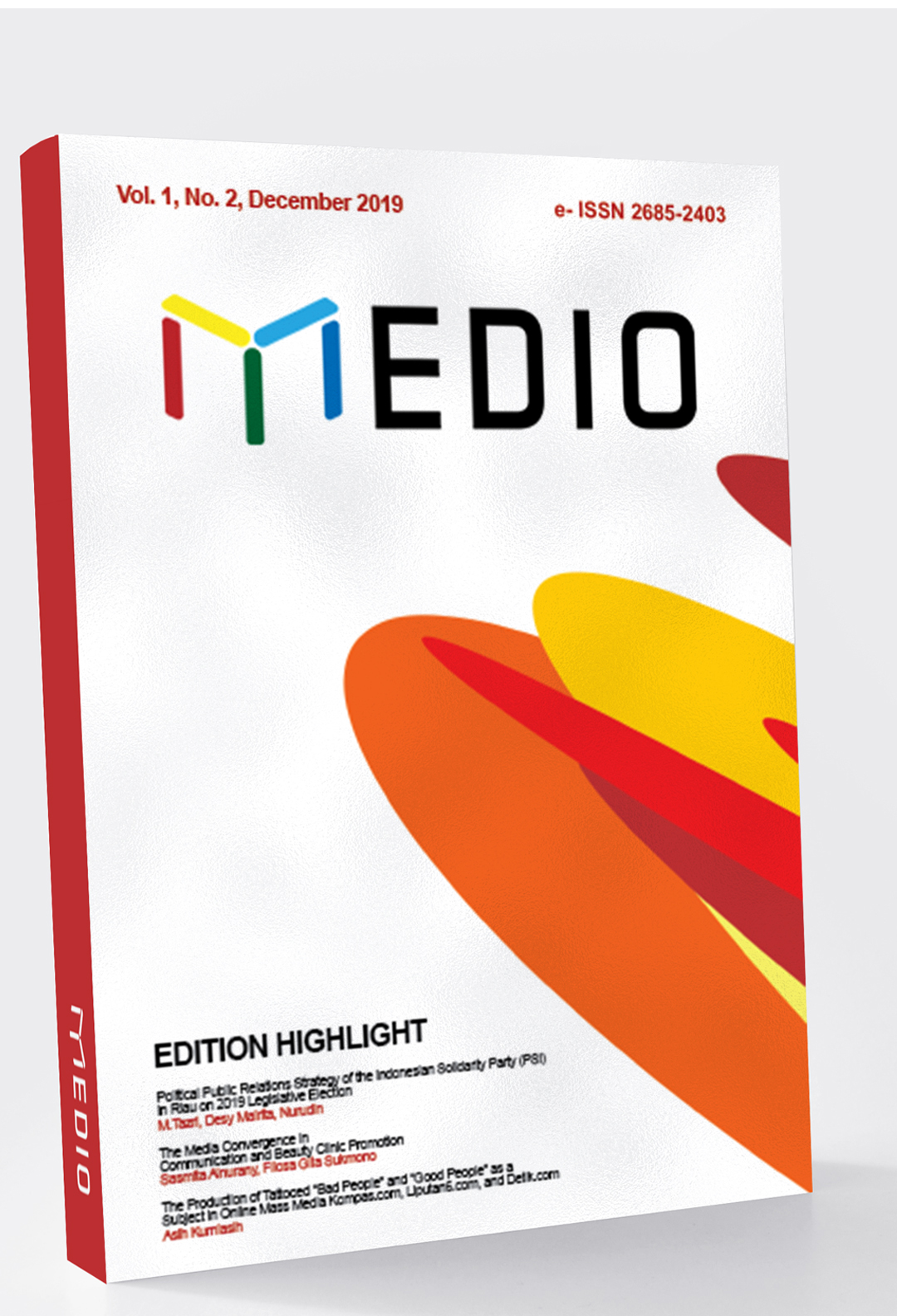Self-management Analysis of International University Student in Coping with Culture Shock in Indonesia
DOI:
https://doi.org/10.22219/mdo.v2i1.13233Abstract
Culture shock or distress resulting from the loss of cultural identity during social interaction is commonly experienced by a person living in an environment that differs from one's own. The situation is commonly faced by international students who are learning Indonesian culture and language at Universitas Muhammadiyah Malang. Culture shock without proper treatment commonly creates negative emotions that may reduce life satisfaction. The researcher is interested in research concerning the self-management of international students in coping with the culture shock as most of them can adapt well until the end of their program in Indonesia. This research applies a descriptive qualitative case study using a purposive sampling technique to obtain data through interviews, observation, and documentation. The data analysis is by Miles and Huberman's model and source triangulation to validate the data. The study results show that socio-cultural and psycho-cultural concepts have the most significant effect on intra-cultural communication. Some of the culture shock indications for international students in UMM are loneliness, homesickness, and social relation issues (discrimination, prejudice, and stereotypes). The indications are due to external factors (language, interpersonal relation, time management, lifestyle, and food), and internal factors (introvert personality and high expectation). Culture shock often occurs in the first week to the third month after arrival with various levels of severity depends on the person. The self-management conducted by the international students consists of four stages: the sense and awareness process, matching process, judgemental and cognitive-affective instruction, and purposive action. The last stage consists of two aspects: interpersonal relation reinforcement and self-activity reinforcement.
Downloads
References
Adler, P. S. (1975). The Transitional Experience: an Alternative View of Culture Shock. Journal of Humanistic Psychology, 13–23. Belford, N. (2017). International students from Melbourne describing their cross-cultural transitions experiences: Culture shock, social interaction, and friendship development. Journal of International Education Research (JIER), 7(3), 499–521. Brown, J. &. (2013). The international student sojourn, identity conflict and threats to well-being. British Journal of Guidance and Counselling. British Journal of Guidance and Counselling, 395–413. Chien, Y. Y. (2016). After six decadesApplying the U-curve hypothesis to the adjustment of international postgraduate students. Journal of Research in International Education, 15(1), 32–51. Danandjaja, J. (1988). Antropologi Psikologi Teori, Metode dan Sejarah Perkembangannya. Jakarta: CV Rajawali. Dayakisni, T., & Hudainah. (2009). Psikologi Sosial. Malang: UMM Press. Dayakisni, T., & Yuniardi, S. (2012). Psikologi Lintas Budaya. Malang: UMM Press. Endit, I. A. (2014). Culture Shock Ditinjau dari Tipe Kepribadian Introvert dan Ekstrovert pada Mahasiswa Perantauan. Malang: Universitas Muhammadiyah Malang. Feist, J. (2011). Teori Kepribadian 2. Jakarta: Salemba Humanika. Furnham, C. W. (2002). The Psychology of Culture Shock, 2nd edition. International JoFurnham, C. W. S. B. A. 2002. The Psychology of Culture Shock, 2nd edition. International Journal of Intercultural Relations (Vol. 26), 150-160. Gunawan, I. (2013). Metode Penelitian Kualitatif Teori dan Praktik. Jakarta: Bumi Aksara. Harrison, H. C. (2005). The Three-Contingency Model of Self-Management. West Michigan: West Michigan University. Idrus, M. (2009). Metode Penelitian Ilmu Sosial. Jakarta: Penerbit Erlangga. Liliweri. (1991). Behaviour in Organization : Understanding and Managing the Human Side of Work. Orlando: Allyn and Baco. Moleong, L. (2014). Metodologi Penelitian Kualitatif edisi Revisi. Bandung: PT Remaja Rosdakarya. Mujib, A. (2009). Hubungan Bahasa dan Kebudayaan (Perspektif Sosiolinguistik) 8(1). Adabiyyāt, 141–154. Mulyana, D. (2008). Ilmu Komunikasi Suatu Pengantar. Bandung: Remaja Rosdakarya. Newsome, L. K. (2016). International Students’ Cultural and Social Experiences in a British University: Such a hard life [it] is here. Journal of International Students, 195–215. Prijosaksono, A. (2001). Self Management Series. Jakarta: Gramedia. Rakhmat, J. (2013). Psikologi Komunikasi. Bandung: PT Remaja Rosdakarya. Samovar, L. A. (2010). Komunikasi Lintas Budaya. Jakarta: Salemba Humanika. Soekanto, S. (2013). Sosiologi Suatu Pengantar. Jakarta: PT Raja Grafindo. Suardiman, S. P. (2014). Psikologi Sosial. Yogyakarta: Studing. Sukarna. (2011). Dasar-dasar Manajemen. Bandung: Mandar Maju. Tellis, W. M. (1997). Introduction to Case Study. The Qualitative Report, 3(2), 1-14. Zapf, M. K. (1991). Cross-cultural transitions and wellness: Dealing with culture shock. International Journal for the Advancement of Counselling, 105–119.


